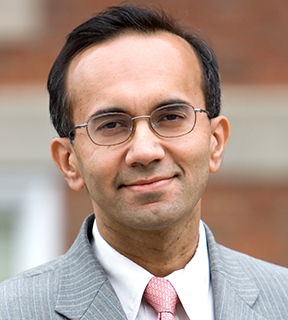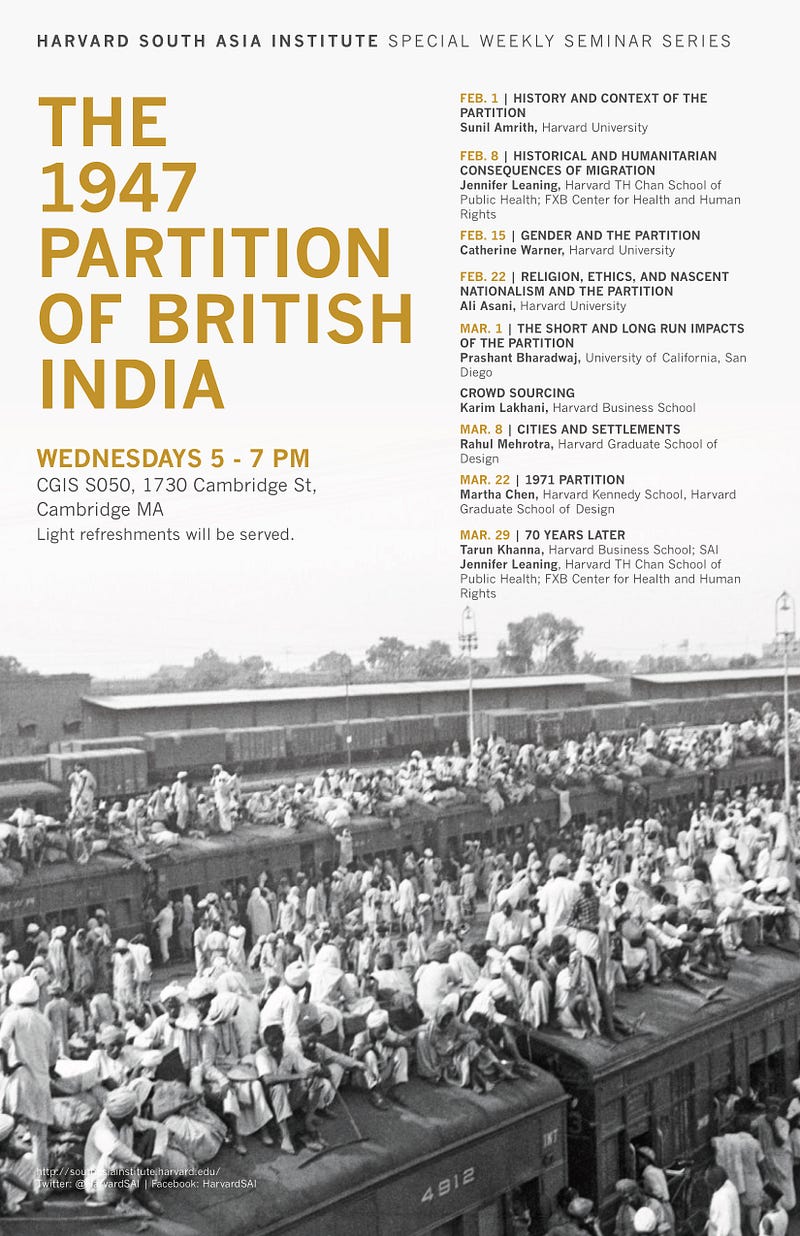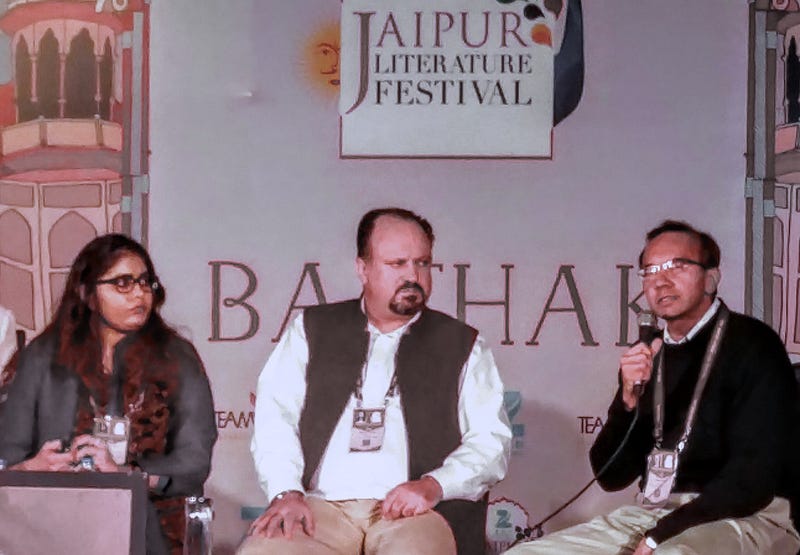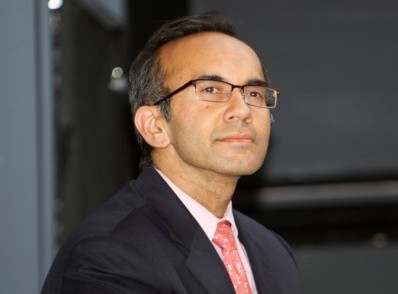By Tarun Khanna
(Editor’s note: Tarun Khanna is Director of the South Asia Institute and Jorge Paulo Lemann Professor at the Harvard Business School. Under his leadership, the South Asia Institute is launching a weekly seminar series at Harvard on the Partition, part of a larger research project on the subject. The seminars start this Wednesday, Feb. 1. In this article, Prof. Khanna talks about this interesting project.)

Both my mother’s and my father’s sides of our family migrated from what is now Pakistan. As a result of Partition, many of them had to leave their lives behind, with years of hard work quickly wiped out, when they moved to New Delhi and were forced to start again. Partition has always been part of my family’s folklore but my grandfather, who bore the brunt of it, passed away very early. I never had the opportunity to discuss it with him.
At the Harvard University South Asia Institute (SAI), we are embarking on a major research project to understand the history, context and continuing impact of Partition, as its 70th anniversary approaches. There has, of course, always been a great deal of interest in this defining historical event from scholars at Harvard and elsewhere. Professor Jennifer Leaning’s team from the Harvard T.H. Chan School of Public Health has been working on Partition research for more than a decade — her work will be central to our collective research.

At the SAI, we have already undertaken a major interdisciplinary project of a similar scale. Our work on the Kumbh Mela was a very successful collaborative effort involving dozens of faculty, students, graduates and undergraduates. We created a platform so that other people could participate; scholars from the region as well as other universities around the world. We produced scholarly papers, videos, architectural designs and ultimately, a book.
Partition is one of the most important events in human history; it is the largest migration that ever took place. Millions of people were affected, mostly negatively. Right now, huge numbers of people are forced to leave their homes in distressing circumstances and as academics, it is important for us to gain an understanding of the mechanics and impact of involuntary migration, particularly in the modern context. We are also studying how new countries are born. Pakistan was a brand new nation-state; India had to undergo a severance. Through the lens of Partition, we are able to study the formation (and regeneration, in India’s case) of the institutions that are necessary for the functioning of a country. Again, these are modern issues and it is as important for us to understand them today as it was 70 years ago.
The SAI will host a series of eight seminars at Harvard, beginning on Feb 1, in which Harvard faculty and visiting scholars present original research on various aspects of Partition’s legacy, influence and implications. These are free and open to the public. The seminars will also form the basis of a series of podcasts, also produced by the SAI, to bring this research and these conversations to a much wider audience.

I was recently in India and spoke about the SAI’s Partition project at the Jaipur Literature Festival. I met many other people who are working on similar projects or on migration-related issues; I discovered a huge amount of interest in what we are doing. Partition may have taken place nearly 70 years ago but its effects continue to be felt and the lessons it teaches us remain relevant today.














